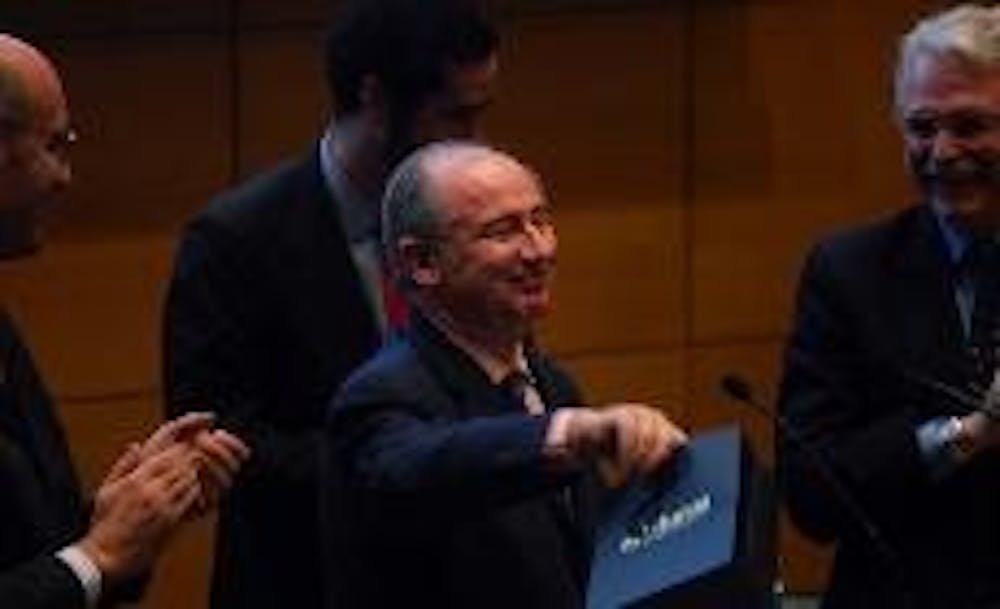As a leader of one of the world's most influential financial institutions, Rodrigo de Rato's advice has far-reaching consequences.
The managing director and chairman of the International Monetary Fund spoke at Huntsman Hall Friday, emphasizing the need for leadership to adapt to the new nature of risks in the world economy.
"We cannot deny a growing uncertainty that is growing in all societies," said Rato, speaking of attitudes toward today's global financial system.
Politicians and business people, he said, must remind citizens of the benefits of trade, noting that "trade liberalization has not only raised emerging-economy incomes, but also U.S. incomes."
However, as the global economy becomes more integrated, a lot of financial risk has shifted from financial institutions to individuals through financial markets, Rato said. He prompted leaders to take adaptive measures to protect individuals from taking on overly risky investments.
Some of the investment trends that Rato cited include sub-prime mortgages, large private equity deals and substantial capital flows into emerging markets.
He emphasized the need to provide financial education to citizens.
"A little bit of concern [today] can avoid a lot of big concerns later," he said.
Rato also talked about how the IMF works to ensure global financial stability.
He said the role of the IMF and its 185-member countries is to be an international community willing to aid individual countries in financial distress.
In response to an audience member's question, Rato conceded that economies are able to resolve financial crises without the IMF, but that help from the IMF can cut the time required to resolve these crises from 15 to 20 years down to just three or four years.
According to Wharton junior Olivier Adler - the president of the Wharton Leadership Lectures Committee, which hosted the lecture - Rato "did an amazing job of explaining how the IMF works."
Jose Palacios, a Ph.D. student from Penn State University, said that, "as a Spanish citizen, I was very honored to hear Mr. Rato's opinions on the world economy."
Paul Flegler, a Wharton MBA student, said, "I didn't feel like I walked from [the lecture] with some personal insights into what makes [Rato] a successful leader."
Nevertheless, he said, it was an interesting talk.



